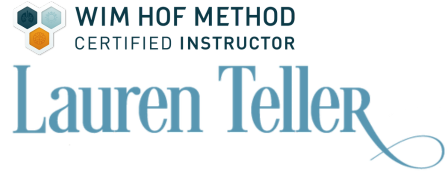Hope
I keep bad news from the Middle-East stored in the only place that fits so much horror: the bulletin board inside my heart. I tack up headlines and hope. Last spring, I was thrilled when I was asked to be the female instructor for a breath and cold plunge workshop hosted by Our Generation Speaks. OGS is a Boston-based incubator program that supports entrepreneurs from Israel and Palestine in working together to create a peaceful Israeli-Palestinian future. Their website is filled with words like hope and trust. Hooray, because the breathing techniques I teach alleviate stress, and doing challenging physical things like the cold plunge side by side builds trust. Joyce Carol Oats said, “We tell ourselves stories to live.” The breathing might feel awkward and the cold harrowing, but if they find trust, they could go home with stories to help the whole region heal. This will be great!
Weeks later, reality hit me on the drive to Brandeis University, where the workshop was held. I have this thing where I write the ending first, but in the face of conflicts in the Middle-East, what did I know? Teaching involves reaching people and all I knew of their lives was a few headlines on a bulliten board. I shook my head at my own moral vanity, pulled over, and called my Rabbi. “Unity without uniformity, let that be your teaching imperative,” the Rabbi counseled. Advice is what you make of it, and I was glad to have some.
I talked for hours, they listened. I emphasized geographic commonality and complimented them on learning speed, and they practiced breathing techniques like they knew each other's thoughts. When the ice bath was ready, they circled in silence. A tub filled with ice—even one with daises floating—intimidates. I was reverent too but towards them. I took the hands of the first woman. She stepped forward, put her toe in the tub, and stopped.
“I can’t, I can’t,” she wailed. I gripped her hands and thought of Vaclav Havel’s words: “Hope is not the conviction that something will turn out well, but the certainty that something is worth doing no matter how it turns out.” A woman in a full-body burkini rushed forward.
“Yes, you CAN, Zalika!! YOU CAN! Your breath. Do like this, like this,” she said, and taking a full inhale through her nose, she demonstrated the long, slow exhale needed to calm the nervous system. Zalika’s body twisted and I braced. A woman with a star of David at her neck pried one of Zalika’s hands from mine.
“Zalika, focus,” she whispered, “remember what she taught us. Think of our future! There will be hard things; that’s why we’re here. The breath and conquering the ice will help.”
I don’t understand enough to write big stories. I write only what I know. I know that when someone feels the power of breath, a door inside opens. Zalika inhaled and, on an exhale, stepped in, bent her knees, and descended. The hem of her headscarf floated on the ice. When a person’s immersed in frigid water, there’s thoughtfulness, worry, or joy in their eyes. When there’s something else, I stand as a silent witness on the shore. It was like that with Zalika. A tremble passed between our hands; I don’t know where it began. Then she smiled, rose, and stepped out.
The afternoon went like that: head-to-toe burkinis alternating with tiny swimsuits; terrified faces turned to joy. Cold, wet hugs. Unfamiliar names like Aziza, Eluf, and Zalika; familiar ones like Rachel, Miriam, and Sarah. Cheers for places I have never seen: Ramallah, Nazareth, Bethlehem, and for places I know well: Tel Aviv, Haifa, Jerusalem. The women sang in Arabic and Hebrew; it was hard to hear the difference.
That was in June 2023, 4 months before October 7th. We held hands and laughed and danced, unaware that the world was waiting and plotting, while hope stretched above us, wide as the sky.

